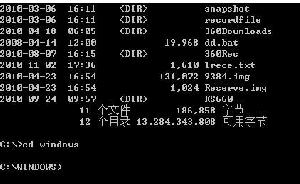FreeBSD系统SSH配置详解
修改freebsd可以用sshd权限用户登录ssh 但不能用root用户登录的方法
在/etc/ssh/sshd_config最后中加入
PermitRootLogin yes #允许root登录
PermitEmptyPasswords no #不允许空密码登录
PasswordAuthentication yes # 设置是否使用口令验证。
就可以了
FreeBSD SSH配置详解
首先vi编辑/etc/inetd.conf,去掉ssh前的#,保存退出 (开启****ssh服务)
编辑/etc/rc.conf
最后加入:sshd_enable="yes"即可
激活sshd服务:
techo#/etc/rc.d/sshd start
用下面命令检查服务是否启动,在22端口应该有****。
#netstat -an ## check port number 22
最后
vi /etc/ssh/sshd_config,
下面是我的配置文件:(/etc/ssh/sshd_config)
####################################################
# $OpenBSD: sshd_config,v 1.72 2005/07/25 11:59:40 markus Exp $
# $FreeBSD: src/crypto/openssh/sshd_config,v 1.42.2.1 2005/09/11 16:50:35 des Exp $
# This is the sshd server system-wide configuration file. See
# sshd_config(5) for more information.
# This sshd was compiled with PATH=/usr/bin:/bin:/usr/sbin:/sbin
# The strategy used for options in the default sshd_config shipped with
# OpenSSH is to specify options with their default value where
# possible, but leave them commented. Uncommented options change a
# default value.
# Note that some of FreeBSD"s defaults differ from OpenBSD"s, and
# FreeBSD has a few additional options.
#VersionAddendum FreeBSD-20050903
#Port 22
#Protocol 2
#AddressFamily any
#ListenAddress 10.1.10.196
#ListenAddress ::
# HostKey for protocol version 1
#HostKey /etc/ssh/ssh_host_key
# HostKeys for protocol version 2
#HostKey /etc/ssh/ssh_host_dsa_key
# Lifetime and size of ephemeral version 1 server key
#KeyRegenerationInterval 1h
#ServerKeyBits 768
# Logging
# obsoletes QuietMode and FascistLogging
#SyslogFacility AUTH
#LogLevel INFO
# Authentication:
#LoginGraceTime 2m
#PermitRootLogin no
#StrictModes yes
#MaxAuthTries 6
#RSAAuthentication yes
#PubkeyAuthentication yes
#AuthorizedKey .ssh/authorized_keys
# For this to work you will also need host keys in /etc/ssh/ssh_known_hosts
#RhostsRSAAuthentication no
# similar for protocol version 2
#HostbasedAuthentication no
# Change to yes if you don"t trust ~/.ssh/known_hosts for
# RhostsRSAAuthentication and HostbasedAuthentication
#IgnoreUserKnownHosts no
# Don"t read the user"s ~/.rhosts and ~/.shosts files
#IgnoreRhosts yes
# Change to yes to enable built-in password authentication.
PasswordAuthentication yes
#PermitEmptyPasswords no
# Change to no to disable PAM authentication
#ChallengeResponseAuthentication yes
# Kerberos options
#KerberosAuthentication no
#KerberosOrLocalPasswd yes
#KerberosTicketCleanup yes
#KerberosGetAFSToken no
# GSSAPI options
#GSSAPIAuthentication no
#GSSAPICleanupCredentials yes
# Set this to "no" to disable PAM authentication, account processing,
# and session processing. If this is enabled, PAM authentication will
# be allowed through the ChallengeResponseAuthentication mechanism.
# Depending on your PAM configuration, this may bypass the setting of
# PasswordAuthentication, PermitEmptyPasswords, and
# "PermitRootLogin without-password". If you just want the PAM account and
# session checks to run without PAM authentication, then enable this but set
# ChallengeResponseAuthentication=no
#UsePAM yes
#AllowTcpForwarding yes
#GatewayPorts no
#X11Forwarding yes
#X11DisplayOffset 10
#X11UseLocalhost yes
#PrintMotd yes
#PrintLastLog yes
#TCPKeepAlive yes
#UseLogin no
#UsePrivilegeSeparation yes
#PermitUserEnvironment no
#Compression delayed
#ClientAliveInterval 0
#ClientAliveCountMax 3
#UseDNS no
#PidFile /var/run/sshd.pid
#MaxStartups 10
# no default banner path
#Banner /some/path
# override default of no subsystems
Subsystem sftp /usr/libexec/sftp-server
IgnoreRhosts yes
IgnoreUserKnownHosts yes
PrintMotd yes
StrictModes no
RSAAuthentication yes
PermitRootLogin yes #允许root登录
PermitEmptyPasswords no #不允许空密码登录
PasswordAuthentication yes # 设置是否使用口令验证。
##############################################
记得修改完配置文件后,重新启动sshd服务器(/etc/rc.d/sshd restart)即可。
几点补充说明
1,如果重启后还是不行请重新载入sshd_config 文件
/etc/rc.d/sshd reload
2,如果出现using keyboard-interactive authentication
password:
请确认PasswordAuthentication是否已经改成yes
另外如果客户端是putty那么请确认"尝试"智能键盘"认证(SSH-2)"的勾是否有去掉
3,如果是使用root帐号登陆
请确认密码是否为空
空密码无法登陆
4请确认是否有安装SSH
sysinstall>>>configure>>>networking>>>sshd是否的勾是否有打上
相关文章:
1. win最稳定的版本推荐2. Win11预览版25295怎么开启Suggested Actions 等隐藏新功能?3. Win11预览版25295托盘无法继续显示秒数怎么办? Win11时间显示秒数的技巧4. Win11 双击文件夹弹出属性怎么办?Win11双击文件夹弹出属性解决方法5. Win11手柄连接成功用不了的解决方法6. 怎么让Win11系统托盘显示秒数?7. 你没有权限在此位置中保存文件请与管理员联系以或得相应权限8. Win11摄像头禁用了怎么办?Win11系统禁用摄像头无法使用解决方法9. Win11如何关闭登录密码?Win11关闭登录密码的两种解决方法10. Win11充电有感叹号怎么办?Win11充电有感叹号的解决方法
- 排行榜

- 在dos环境下怎么备份/恢复注册表 在dos环境下备份注册表的方法教程
- 1. U盘PE启动安装GHOST系统图文教程
- 2. dell电脑一键u盘装系统安装win10教程
- 3. 电脑C盘winsxs可以删除吗
- 4. Win11 Dev 预览版Build 25300发布更新(附完整更新日志)
- 5. mac怎么关闭ipv4? MacOS系统关闭IPv4d地址的技巧
- 6. Mac菜单栏怎么设置?Mac菜单栏设置方法
- 7. Linux下RPM软件包的安装、更新及卸载方法
- 8. Win10 发布 3 月补丁 KB5023696,版本号升至 Build 1904x.2728
- 9. Win11死亡空间2闪退怎么办?Win11死亡空间2闪退解决方法
- 10. 为Llinux系统添加交换分区(swap space)的方法
 网公网安备
网公网安备